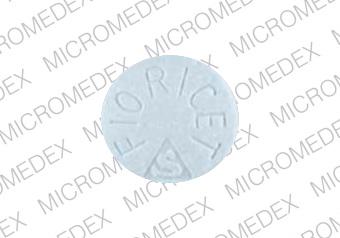Abuse of butalbital, a medication commonly found in combination with other drugs such as acetaminophen and caffeine in products like Fioricet and Fiorinal, can have serious consequences. Butalbital is a barbiturate, a type of central nervous system depressant, and it is primarily used to treat tension headaches and migraines.
Here are some potential risks and consequences associated with butalbital abuse:
- Physical Dependence: Prolonged use or abuse of butalbital can lead to physical dependence, where the body becomes accustomed to the presence of the drug and experiences withdrawal symptoms when it is discontinued.
- Tolerance: Over time, individuals may develop tolerance to butalbital, meaning they require increasingly higher doses to achieve the desired effects. This can increase the risk of overdose and other adverse effects.
- Addiction: Abuse of butalbital can lead to psychological dependence and addiction. Individuals may continue to use the drug despite negative consequences, and efforts to stop or reduce use may be met with cravings and withdrawal symptoms.
- Respiratory Depression: Butalbital is a central nervous system depressant, and high doses or combined use with other depressants such as alcohol or opioids can lead to respiratory depression, a potentially life-threatening condition characterized by slowed or shallow breathing.
- Liver Damage: Products containing butalbital often also contain acetaminophen, which can cause liver damage or failure when taken in excessive amounts. Chronic abuse of butalbital-containing medications can increase the risk of liver toxicity.
- Cognitive Impairment: Butalbital abuse can impair cognitive function, including memory, concentration, and judgment, leading to impaired performance at work, school, or in daily activities.
- Overdose: Taking high doses of butalbital or combining it with other substances can increase the risk of overdose, which can be fatal. Symptoms of butalbital overdose may include confusion, drowsiness, respiratory depression, coma, and death.
Barbiturates may be habit-forming: Tolerance, psychological dependence, and physical dependence may occur especially following prolonged use of high doses of barbiturates. The average daily dose for the barbiturate addict is usually about 1500 mg.
As tolerance to barbiturates develops, the amount needed to maintain the same level of intoxication increases; tolerance to a fatal dosage, however, does not increase more than two-fold. As this occurs, the margin between an intoxication dosage and fatal dosage becomes smaller.
 The lethal dose of a barbiturate is far less if alcohol is also ingested. Major withdrawal symptoms (convulsions and delirium) may occur within 16 hours and last up to 5 days after abrupt cessation of these drugs. Intensity of withdrawal symptoms gradually declines over a period of approximately 15 days.
The lethal dose of a barbiturate is far less if alcohol is also ingested. Major withdrawal symptoms (convulsions and delirium) may occur within 16 hours and last up to 5 days after abrupt cessation of these drugs. Intensity of withdrawal symptoms gradually declines over a period of approximately 15 days.
Treatment of barbiturate dependence consists of cautious and gradual withdrawal of the drug. Barbiturate-dependent patients can be withdrawn by using a number of different withdrawal regimens. One method involves initiating treatment at the patient’s regular dosage level and gradually decreasing the daily dosage as tolerated by the patient.
Butalbital is a short- to immediate-acting barbiturate that decreases anxiety, resulting in drowsiness and relaxation. Butalbital is mixed with other drugs to form a relief for tension headaches. Butalbital overdose symptoms may also involve the symptoms of the other compounds used in the medications.
onsuming butalbital over a long period may result in tolerance, making it necessary to take increasing amounts to produce the same effect. Tolerance to a fatal dosage does not increase more than twofold. This causes the margin between taking a dosage that results in intoxication and taking a fatal dosage to shrink. Taking large quantities of butalbital can result in dangerous consequences, including death. To avoid overdose symptoms, call 1-888-630-7086 to locate a butalbital detox center near you.
Overdose Signs and Symptoms
An overdose on butalbital may result from an accidental or intentional act of taking more than the normal or recommended dosage. Overdoses on butalbital may result in toxicity. Signs of an overdose on butalbital include:
- Confusion
- Faulty judgment
- Slowness of speech
- Slurred speech
- Extreme sleepiness
- Sluggishness or hyporeflexia
- Lack of coordination
- Respiratory depression
- Staggering
- High blood pressure
- Bradycardia
- Hypovolemic shock
- Hypothermia
- Limp muscles
- Apnea
- Coma
Butalbital overdose symptoms themselves are very serious. A single overdose can result in permanent brain damage or death, particularly if a large amount of butalbital is ingested and treatment is delayed. You need to seek immediate addiction treatment if you experience any signs of an overdose on butalbital. Show your body an act of kindness and become free from butalbital.